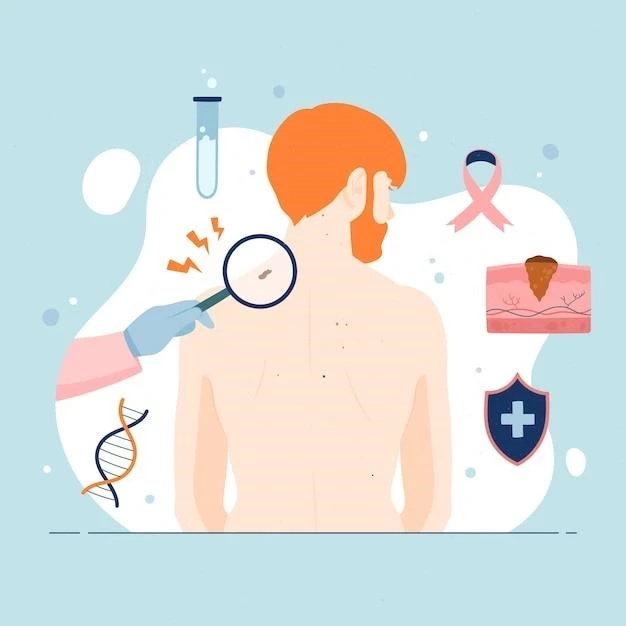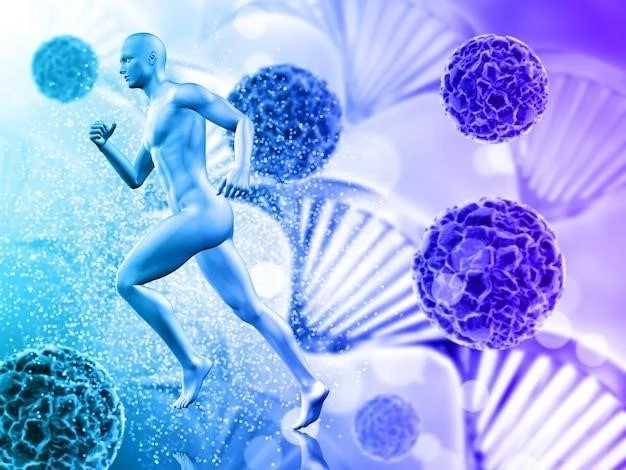Disease ‒ Male Pseudohermaphroditism due to Defective LH Molecule
Male pseudohermaphroditism, a rare medical condition, can be caused by a defective LH (luteinizing hormone) molecule. This genetic abnormality affects the endocrine system, impacting hormone production essential for reproductive development. Understanding the role of LH in this disorder is crucial for effective diagnosis and treatment.
I. Introduction
Male pseudohermaphroditism is a medical condition where an individual has external male genitalia but incomplete or underdeveloped internal reproductive structures. In cases where this condition is due to a defective LH (luteinizing hormone) molecule, the impact on hormonal balance and reproductive development can be profound.
Understanding male pseudohermaphroditism is essential in the field of endocrinology and reproductive health. The defective LH molecule disrupts the normal hormonal cascade that governs puberty and related processes. This article explores the genetic and developmental aspects of this disorder, its symptoms, diagnosis, and treatment options.
By delving into the specifics of how a defective LH molecule contributes to male pseudohermaphroditism, we can gain insights into the intricate interplay between hormones, genetics, and reproductive development. This knowledge is crucial for clinicians, researchers, and individuals affected by this rare but impactful condition.
II. Genetics and Development
Male pseudohermaphroditism due to a defective LH molecule is often linked to genetic mutations affecting the LH gene or its receptor. These mutations can be inherited or occur spontaneously. The LH hormone plays a crucial role in the development of male reproductive organs and the production of testosterone.
During normal development, LH stimulates the Leydig cells in the testes to produce testosterone, a key hormone in male sexual development. When the LH molecule is defective, this process is disrupted, leading to hormonal imbalances and incomplete masculinization of the external genitalia.
The genetic basis of this condition lies in alterations in the DNA sequence that codes for LH or its receptor. These mutations can interfere with the binding of LH to its receptor or disrupt downstream signaling pathways essential for hormone production and reproductive development.
Understanding the genetics of male pseudohermaphroditism due to a defective LH molecule is vital for accurate diagnosis and genetic counseling. Genetic testing can identify specific mutations and help predict the likelihood of passing on the condition to future generations.
Additionally, insights into the developmental pathways affected by the defective LH molecule can guide research into potential therapeutic interventions that target the underlying genetic abnormalities. By unraveling the intricate interplay between genetics and male reproductive development, advancements in diagnosis and treatment of this condition can be achieved.
III. Symptoms and Diagnosis
Male pseudohermaphroditism due to a defective LH molecule can present with a range of symptoms related to abnormal sexual development. Common symptoms include ambiguous genitalia, where the external genitalia may not clearly appear distinctly male. Additionally, individuals may experience reduced virilization, meaning incomplete development of male secondary sexual characteristics.
Diagnosing male pseudohermaphroditism involves a comprehensive evaluation of the patient’s medical history, physical examination, and hormonal testing. In cases where a defective LH molecule is suspected, genetic testing may be recommended to identify specific mutations associated with the condition.
Specific diagnostic criteria for male pseudohermaphroditism due to defective LH molecule include assessing hormone levels such as testosterone and LH. Imaging studies, such as ultrasound or MRI, may also be used to visualize the internal reproductive structures and confirm the presence of any abnormalities.
It is essential for healthcare providers to approach the diagnosis of male pseudohermaphroditism with sensitivity and understanding due to the complex nature of this condition. Genetic counseling should be offered to individuals and families to help them understand the genetic implications and make informed decisions about management and future reproductive choices.
Early and accurate diagnosis of male pseudohermaphroditism is crucial for initiating appropriate treatment strategies and providing necessary support to individuals affected by this disorder. By recognizing the symptoms and conducting thorough diagnostic evaluations, healthcare professionals can work towards optimizing the health and well-being of those with male pseudohermaphroditism.
IV. Understanding the Defective LH Molecule
The luteinizing hormone (LH) is a crucial hormone in the endocrine system that plays a central role in male reproductive health. In male pseudohermaphroditism, a defective LH molecule can have significant implications for hormonal balance and sexual development.
Normal LH function involves stimulating the Leydig cells in the testes to produce testosterone, which is essential for the development of male reproductive organs and secondary sexual characteristics. When the LH molecule is defective, this process is disrupted, leading to inadequate testosterone production and impaired masculinization.
The defective LH molecule may result from mutations in the LH gene or its receptor, impacting the hormone’s ability to bind to its receptor and trigger the necessary signaling pathways. These disruptions can manifest as a range of symptoms associated with male pseudohermaphroditism.
Understanding the structural and functional characteristics of the defective LH molecule is crucial for unraveling the mechanisms underlying male pseudohermaphroditism. Research into how these mutations affect hormone signaling pathways and gene expression can provide valuable insights into potential therapeutic targets.
By delving into the complexities of the defective LH molecule and its implications for male reproductive health, researchers and healthcare providers can work towards advancements in diagnostic methods, treatment approaches, and genetic counseling for individuals affected by male pseudohermaphroditism.
V. Effects on Puberty and Hormone Production
Male pseudohermaphroditism due to a defective LH molecule can have profound effects on puberty and hormone production. LH is crucial for stimulating testosterone production, which is essential for the development of male secondary sexual characteristics during puberty.
When the LH molecule is defective, the normal hormonal cascade that drives puberty is disrupted. This can result in delayed or incomplete development of male secondary sexual characteristics such as deepening of the voice, growth of facial hair, and muscle development.
Inadequate testosterone production due to the defective LH molecule can also impact fertility and sexual function in affected individuals. Testosterone plays a key role in sperm production and libido, and disruptions in its levels can lead to reproductive challenges.
The effects on hormone production extend beyond puberty, impacting overall hormonal balance throughout adulthood. Individuals with male pseudohermaphroditism may require hormone replacement therapy to maintain appropriate testosterone levels and address any associated symptoms.
Understanding how the defective LH molecule influences puberty and hormone production is essential for tailoring treatment approaches to address the specific needs of individuals with male pseudohermaphroditism. By addressing hormonal imbalances early and effectively, healthcare providers can help support healthy development and well-being in those affected by this condition.
VI. Treatment Options

Treating male pseudohermaphroditism due to a defective LH molecule often involves a multidisciplinary approach aimed at addressing hormonal imbalances and supporting reproductive health. The specific treatment options may vary depending on the severity of symptoms and individual needs.
Hormone replacement therapy is a common treatment for individuals with male pseudohermaphroditism to supplement deficient testosterone levels. By administering synthetic hormones, healthcare providers can help promote the development of male secondary sexual characteristics and support overall reproductive function.
Surgical interventions may be considered in cases where anatomical abnormalities require correction to improve function or aesthetics. These procedures are typically tailored to the individual’s specific needs and may involve reconstructive surgery to address genital ambiguity or other related issues.
Genetic counseling is an essential component of the treatment process for male pseudohermaphroditism. Counselors can provide individuals and families with information about the genetic basis of the condition, inheritance patterns, and potential implications for future generations.
Psychotherapy and ongoing psychological support are also important aspects of treatment for individuals with male pseudohermaphroditism. Addressing the emotional and mental well-being of those affected by this condition is integral to their overall health and quality of life.
Research into novel treatment approaches, including gene therapies aimed at correcting the underlying genetic mutations associated with male pseudohermaphroditism, holds promise for improving outcomes for affected individuals. By continuing to advance our understanding of this condition, we can develop increasingly effective and personalized treatment strategies.
VII. Management and Support
The management of male pseudohermaphroditism due to a defective LH molecule requires a comprehensive approach that addresses medical, psychological, and social aspects of care. Providing ongoing support to individuals and their families is essential in navigating the challenges associated with this condition.
Regular monitoring of hormone levels and overall health is critical to ensure that treatment strategies are effective and adjusted as needed. Healthcare providers, including endocrinologists and genetic counselors, play a key role in coordinating care and supporting individuals with male pseudohermaphroditism.
Educating patients and their families about the condition, treatment options, and potential outcomes is an important aspect of management. Empowering individuals with knowledge about their health can help them make informed decisions and actively participate in their care.
Incorporating psychological support services, such as therapy or support groups, can help individuals cope with the emotional challenges that may arise from living with male pseudohermaphroditism. Addressing feelings of stigmatization, identity issues, and coping strategies is integral to holistic care.
Engaging with advocacy organizations and online resources can also connect individuals with male pseudohermaphroditism to a supportive community and valuable information. Finding a network of peers who understand their experiences can provide comfort and encouragement throughout their journey.
As research continues to advance our understanding of male pseudohermaphroditism, individuals affected by this condition can benefit from emerging treatment options and support services. By fostering a multidisciplinary approach that prioritizes individualized care and ongoing support, healthcare providers can improve the quality of life for those living with male pseudohermaphroditism due to a defective LH molecule.
